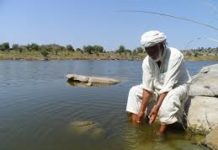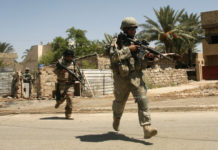Muhammad Luqman
Sixteen years ago when al-Qaeda terrorists flew two passenger planes into the twin towers of World Trade Center, Pakistanis shared the grief with Americans as they watched destruction on TV screens, some 12,000 kilometers away from ground zero.
But they had no idea that the war that started in the United States on September 11, 2001 would push Pakistan and Afghanistan into the center of war against terror. Following the terrorist attacks, the United States invaded Afghanistan to punish the perpetrators, who had a safe haven in the landlocked country.
The immediate fallout was that hundreds of al-Qaeda-linked and Afghan militants crossed into Pakistan’s tribal areas from Afghanistan, triggering a war which continues to this day – with both economic and security implications.
Pakistan’s joining the international war on terrorism, and being the most viable route for US supplies into landlocked Afghanistan, its strategic importance increased manifold.
Islamabad saw an unprecedented upsurge in international diplomatic engagement, with the US and other Western nations working closely with the country to secure the Afghan border as well as ensure smooth flow of supplies.
Pakistan’s alliance proved a bonanza for the Pervez Musharraf regime in economic terms. According to the Center for Defense Information, in the three years before the attacks on America, Pakistan received about $ 9 million dollars in aid. While during the post-9/11 three years it received $4.7 billion in military assistance alone.
Before the 9/11 events, Pakistan was on the verge of default on its debt. Pakistan’s significant economic gains since 2002, for which the Musharraf government used to take credit, were due to sudden inflows in assistance and remittances.
Economically, the country has had mixed effects. In the early years, particularly during the first half of the last decade, Pakistan built on its foreign exchange reserves, gained goodwill with economic assistance and deals from world financial institutions, saw a jump in investment in new sectors like IT and uptick in economic activity.
But early economic gains gave way to serious challenges. The world lost its way in the fight against terror as the US diverted resources from Afghanistan to Iraq war theater, and Afghanistan began to experience the Taliban insurgency.
In Pakistan, emergence of the Tehrik-e-Taliban Pakistan posed the biggest security challenge to the state and terror attacks eroded the country’s economic momentum.
The much talked about trickle down benefits of macroeconomic stability never happened.
Now in 2017, Pakistan having largely subdued the Taliban insurgency, looks a lot better on the security front but its economic challenges persist as population has increased and energy shortages and Afghan instability keep largescale investment away.
But this success against the Taliban has come at a high cost.
In the past fifteen years, some 60,000 people have been killed during the fight against terrorism. More than 4,000 security personnel have also died.
According to the government figures, the cost to the economy – directly and indirectly – amounts to 123 billion US Dollars. Khyber Pakhtunkhuwa and Balochistan suffered the most in terms of economic activity.
Pakistan’s trade also has suffered in the last few years due to a variety of reasons including bad economic governance and domestic and regional security situations. The nascent information technology was the first victim and the US $ 10 billion export target set for this sector never materialized. Textile exports have been hovering around US $ 14 billion.
In the security area, while the Radd-ul-Fasad operation has been launched after the success of Zarb-e-Azab operation that has helped eliminate sanctuaries of terrorists much work remains to be done to implement the National Action Plan that promises progress in other areas like economic opportunity to defeat the appeal of militancy.
Meanwhile, relations with New Delhi face a stalemate and Indian brutal repression in Kashmir has ratcheted up tensions.
Yet, Pakistan has a lot to look forward to, especially with progress on China Pakistan Economic Corridor and the immense economic activity is likely to generate across the country.
On the other hand, the New South Asia-Afghanistan Policy announced by President Donald J. Trump has further soured relations between the United States and Pakistan. According to analysts, Washington will have to broaden its economic and security engagement with Pakistan . Otherwise it will be difficult to win the war against terrorism especially in neighbouring Afghanistan.















